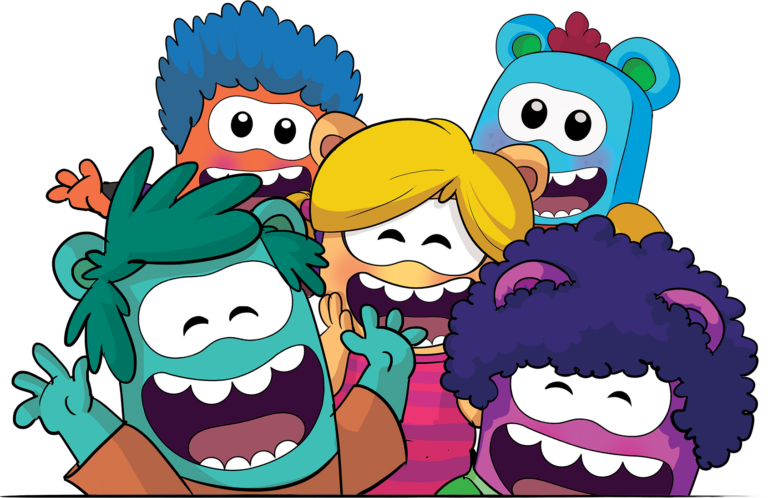In the digital age, children are exposed to a vast array of content from an early age. From television shows and movies to interactive apps and games, the content landscape has evolved significantly. As parents of children aged 3 to 8, it is essential to curate a holistic content diet that not only entertains but also fosters their development. In this article, we’ll explore the significance of a well-rounded content diet, its impact on young minds, and practical tips for parents to navigate this digital era while ensuring their children’s well-being.
Understanding Holistic Content:
A holistic content diet goes beyond mere entertainment; it encompasses a diverse range of content that contributes to a child’s cognitive, emotional, and social development. Holistic content addresses various facets of a child’s growth, including intellectual stimulation, emotional intelligence, creativity, and values formation.
1. Intellectual Stimulation:
Content that engages a child’s intellect is crucial for cognitive development. Educational programs, age-appropriate documentaries, and interactive learning apps can provide a foundation for early learning, language development, and problem-solving skills.
2. Emotional Intelligence:
Emotional intelligence is a key aspect of a child’s overall development. Stories that explore emotions, interpersonal relationships, and empathy contribute to the development of emotional intelligence. Characters navigating various feelings and situations help children understand and express their own emotions.
3. Creativity and Imagination:
Nurturing creativity and imagination is vital for a child’s cognitive growth. Content that encourages imaginative play, storytelling, and artistic expression fosters creativity. This can include animated shows, storybooks, and activities that inspire children to think outside the box.
4. Social Skills and Values:
Content plays a significant role in shaping a child’s understanding of societal norms, values, and interpersonal relationships. Shows and stories that emphasize cooperation, kindness, and diversity contribute to the development of positive social skills and values.
The Impact of Content on Young Minds:
1. Cognitive Development:
The early years are a critical period for cognitive development. High-quality educational content can enhance a child’s language skills, problem-solving abilities, and overall cognitive functioning. Interactive apps and games designed with educational objectives can provide a valuable supplement to traditional learning methods.
2. Emotional Well-Being:
Content has the power to influence a child’s emotional well-being. Exposure to positive and relatable characters can contribute to a child’s self-esteem, while stories that address emotional challenges help children navigate their own feelings. Conversely, inappropriate or overly stimulating content can have negative effects on emotional development.
3. Behaviour and Values:
Children often model their behavior based on what they see and experience. Content that promotes positive behavior, teamwork, and values aligning with the family’s beliefs can have a profound impact on a child’s moral development. Parents should be mindful of the messages and values portrayed in the content their children consume.
4. Screen Time Management:
Excessive screen time can have adverse effects on a child’s development. It is essential for parents to establish healthy screen time limits and ensure that content is age-appropriate. Balancing screen time with other activities, such as outdoor play, reading, and family interactions, is crucial for a child’s holistic development.
Practical Tips for a Holistic Content Diet:
1. Research Content Beforehand:
Before introducing new content to your child, take the time to research and evaluate it. Look for reviews, check ratings, and consider the educational value, age-appropriateness, and potential impact on your child’s development.
2. Curate a Diverse Selection:
Build a well-rounded library of content that includes educational programs, imaginative play opportunities, and stories that promote positive values. Diversify the content to cater to different aspects of your child’s development.
3. Engage in Co-Viewing:
Whenever possible, engage in co-viewing or co-playing with your child. This not only allows you to monitor the content but also provides an opportunity for meaningful discussions. Ask open-ended questions to encourage your child to share their thoughts and insights.
4. Set Screen Time Limits:
Establish clear and consistent screen time limits for your child. The American Academy of Pediatrics recommends no more than one hour of screen time per day for children aged 2 to 5, and consistent limits for older children. Create a schedule that balances screen time with other activities.
5. Encourage Interactive Learning:
Choose content that encourages interactive learning. Educational apps, games, and activities that involve problem-solving and creativity can enhance your child’s engagement and contribute to a more enriching experience.
6. Foster Offline Creativity:
While digital content has its place, it’s crucial to balance it with offline activities that foster creativity. Encourage your child to engage in imaginative play, draw, paint, or participate in hands-on activities that stimulate their creativity and motor skills.
7. Monitor Content Trends:
Stay informed about current content trends and popular shows among children. This awareness allows you to have informed conversations with your child and make decisions about what aligns with your family values.
Addressing Challenges:
While a holistic content diet is essential, parents may face challenges in navigating the vast landscape of digital content. It’s common for children to express preferences for content that may not align with parents’ values or educational goals. In such instances, open communication and negotiation become valuable tools.
1. Communicate with Your Child:
Talk to your child about the content they enjoy and why. Understanding their preferences allows you to make informed decisions and find alternatives that align with both their interests and your family values.
2. Negotiate and Compromise:
Negotiation is a valuable skill in parenting. While it’s essential to uphold certain standards, finding compromises that satisfy both your concerns and your child’s interests can create a more cooperative and respectful relationship.
3. Be Open to Feedback:
Children may provide valuable insights into the content they find engaging and educational. Be open to their feedback, and consider it when curating the family’s content diet. This collaborative approach encourages a sense of agency and responsibility in your child.
Conclusion:
In a world inundated with digital content, parents of children aged 3 to 8 play a crucial role in shaping their holistic development. A thoughtful and diverse content diet can have a positive impact on a child’s cognitive, emotional, and social well-being. By understanding the importance of intellectual stimulation, emotional intelligence, creativity, and values formation, parents can navigate the digital landscape with confidence. Implementing practical tips such as researching content, setting screen time limits, and fostering offline creativity ensures that parents actively contribute to their child’s growth and provide a foundation for a healthy relationship with media. In the journey of parenting, curating a holistic content diet becomes not just a responsibility but an opportunity to nurture young minds and cultivate a positive and enriching environment for their development.
Welcome to AppyKids. We are a dedicated team of designers, developers, artists, and storytellers committed to crafting exceptional educational content for preschool children. Our unique learning approach, known as PRESENT-PRACTICE-PLAY, has been developed in collaboration with educational experts to ensure an effective and enjoyable learning experience.
While our primary focus is on enriching the lives of children, we also offer valuable resources for parents and teachers. Our portfolio includes award-winning apps, interactive worksheets, and educational videos designed to engage and educate. Join the AppyKids community, where we make learning feel like an adventure.
Check out our Youtube Channel – a safe, exciting, meaningful place for your child.

